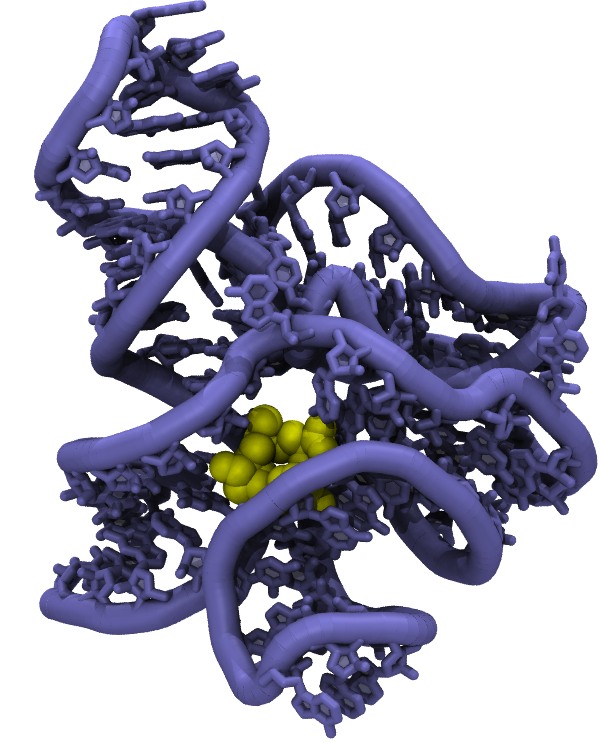

Chemical Biology of Nucleic Acids
Our research aims at a comprehensive molecular understanding of important biological processes of nucleic acids, such as ribosomal translation and gene regulation by riboswitches. The Micura group has a strong focus on the chemical synthesis of ribonucleic acids (RNA) and on nucleic acid structure and function evaluation. In particular, the various aspects of chemically modified RNA – including naturally occurring as well as artificial modifications – are at the center of our research interests.
Methodological Repertoire
Our research employs a wide range of methods to investigate the complex processes and structures of nucleic acids. These include:
- Chemical Synthesis: Development and application of new synthetic methods for RNA and its modifications.
- Structural Analysis: Use of spectroscopic and crystallographic techniques to determine the three-dimensional structure of nucleic acids.
- Functional Studies: Investigation of the biological function and interaction of RNA in cellular processes.
- Biophysical Methods: Analysis of the physical properties and dynamics of nucleic acids using state-of-the-art biophysical techniques.
- Computational Chemistry: Utilization of computer-aided models and simulations to predict and analyze the structure and function of nucleic acids.
By combining these methods, we can gain detailed insights into the mechanisms underlying the biological functions of nucleic acids, thus contributing to a deeper understanding of the molecular foundations of life.

Copyright 2024. All Rights Reserved.